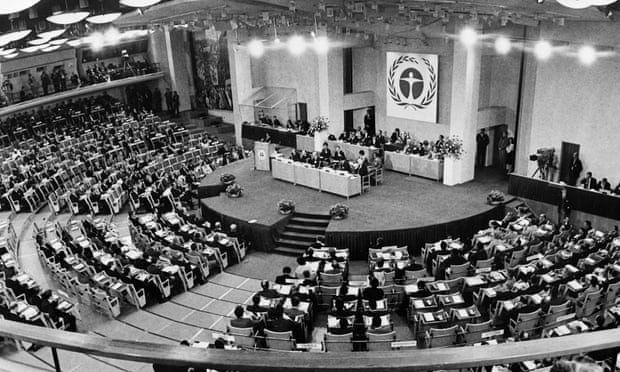For 50 years, governments have failed to act on climate change. No more excuses
The Guardian
Conflict and Covid make these troubling times, but national leaders must cooperate and take action now.
At the end of February this year, the world’s governments signed on to a statement that was startling in its strength and clarity. “The cumulative scientific evidence is unequivocal: Climate change is a threat to human wellbeing and planetary health,” reads the Intergovernmental Panel on Climate Change report. “Any further delay in concerted anticipatory global action on adaptation and mitigation will miss a brief and rapidly closing window of opportunity to secure a liveable and sustainable future for all.’” (...)
It is true that other issues are causing grave concern in many societies: governments worldwide are tackling poverty and hunger, wars and civil conflicts, the rising cost of food and energy, health systems and economies crippled by Covid-19.
But as three former UN climate chiefs, let us be clear: as the world’s first major environment summit - the 1972 Stockholm Conference on the Human Environment - recognised, the crises in security, health, development and the environment are linked. (...)
The further climate change progresses, the more we lock in a future featuring more ruined harvests and more food insecurity along with a host of other problems including rises in sea level, threats to water security, drought and desertification. Governments must act against climate change while also dealing with other pressing crises. (...)
While developed countries accepted the convention’s principle of equity and thus their responsibility to lead climate action, their performance has been disappointing, not least in reducing their emissions of greenhouse gases and in mobilising financial support for developing countries that need it. (...)
But the sum total of policies in place now will take us to a world hotter by 2.7C and perhaps a catastrophic 3.6C above pre-industrial levels.
If science has not persuaded most governments to act, perhaps economics will. The IPCC provides clear evidence that societies will be more prosperous in a world where climate change is constrained, than in one left to burn. (...)
Fifty years ago the international community faced a similar litany of troubles: depletion of natural resources, desertification, the legacy of atom bomb testing, mercury contamination, cold war proxy conflicts. Geopolitics split the world. Yet at the 1972 Conference on the Human Environment in Stockholm, leaders agreed to cooperate on threats faced in common.
Now, with geopolitics made frosty by superpower disagreements and with nations bleeding from Covid and conflict, the world’s people need their leaders once more to work together. (...)

Leaders agreed to cooperate on threats faced in common at the UN Conference on the Human Environment in Stockholm, 1972. Photograph: Pressens Bild/AFP/Getty Images.
Tags: #climate #climate_change #climate_crisis #global_warming #sea_leve; #ocean_level #water_security #drought #desertification #paris_agreement #cop26 #government #international_cooperation